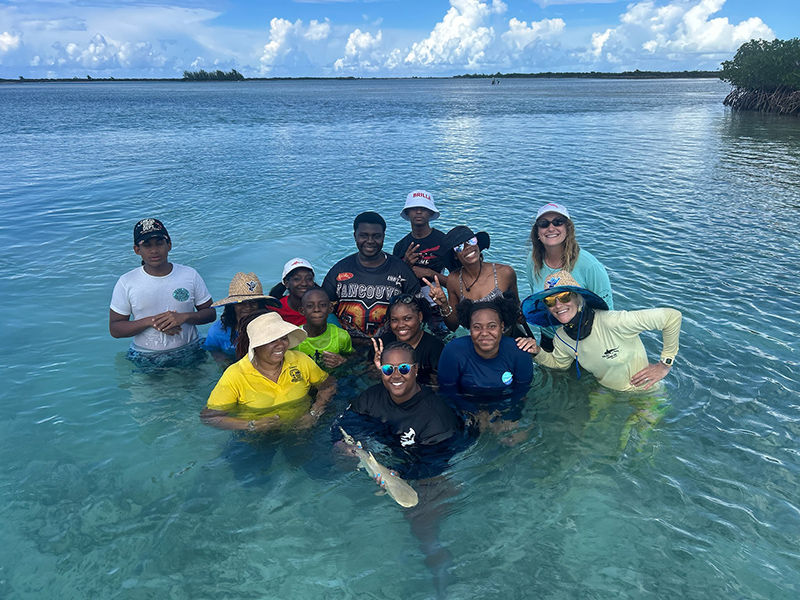Meet Marine Biologist and Videographer Jake Davies
- Sharks4Kids

- Apr 20, 2020
- 4 min read
Jake grew up on Pen Llŷn, North Wales and coming from a maritime family meant
that from a young age the underwater world and marine life have played a major role in his life. Jake is the Project Coordinator for Angel Shark Project: Wales which aims to better understand the Critically Endangered angelshark off the Welsh Coast. He is also a Project Leader on a Save Our Seas Foundation Project to pilot the initiative of testing Baited Remote Underwater Video Cameras (BRUVs) to help better understand angelsharks in Wales and the Canary Islands.
As an underwater videographer he aims to share the the range of marine life and habitats found beneath the waves along the Welsh Coast and further afield. Footage has featured on BBC and Discovery Channels Shark Week.

Follow Jake to learn more about his research and adventures.
1. What is your favourite shark and why?
For me it would have to be the Angelshark - a shark that I’ve been fortunate to be studying for the past three years. It’s a perfectly evolved ambush predator and a master of disguise; using its large pectoral fins to bury itself under the sand or mud. Its sandy-coloured and highly patterned skin allows it to become near invisible. The Angelshark lies still and waits for prey to swim above, which is then captured using a lightning fast strike. To see its strike in action, check out the awesome footage from Especies De Canarias, an underwater videographer from the Canary Islands
2. What is one shark you would like to dive with and study?
There are so many that I would like to dive with as well as study, however the top two to dive with would be the Tiger Shark and the Blue shark (particularly off the coast Welsh coast). Being able to spend time underwater with these two species would be an incredible experience as they are magnificent predators. However, to study I think another I’d also include the Sawfishes, which are the most threatened shark family in the world.
3. How did you get started studying sharks?
Growing up along the coast of the Llŷn Peninsula in North Wales, has meant that I have always been surrounded by the sea and marine life. I’ve got an interest in all marine life from small nudibranchs to sharks, as well as marine habitats such as seagrass. Sharks, especially flatsharks have always caught my interest and I enjoy learning about them, but I never thought that I’d be fortunate to study them as a career. It started when I had a placement year with Natural Resources Wales (NRW) during my Marine Biology course. During the year I was fortunate to be allowed to follow my interest and passions. This is where I helped lead on gathering data for the Angelshark (Squatina squatina) off the Welsh coast and since then I have been working as a Project Coordinator for Angel Shark Project: Wales (www.angelsharkproject.com/wales). This project is led by Zoological Society of London and NRW; funded by the National Lottery Heritage Fund and Welsh Government.

4. Why do you think science/research is so important for shark conservation?
Collecting scientific evidence is vital for any conservation. Without research or data collection there is little to inform conservation measures or targets.
5. What is the coolest/most interesting thing you've seen while diving / studying sharks?
There have a been a range of cool and interesting moments, however, during one of the dives at a local dive site on the Llŷn Peninsula I was able fortunate to see and record an incredibly rare moment of shark behaviour. It was the mating behaviour of the Lesser Spotted Catshark (Scyliorhinus canicula). The behaviour is rarely seen and even less often recorded:
6. Can you tell us a little about your research? What does a typical day in the field look like?
No two days are the same. Due to the conditions off the Welsh coast there is a limited fieldwork season. As a Project Coordinator for Angel Shark Project: Wales a lot of my time is spent carrying out engagement work with fishers, communities and snorkelers/divers to help better understand Angelsharks off the Welsh coast. This is then followed by the part that many people don’t see – spending lots of time in front of a computer screen doing data management and analysis. During the summer, when the weather allows for it, there is time to get in the water for snorkel or dive surveys.
A recent big chunk of exciting fieldwork has been for a Save Our Seas Foundation Baited Underwater Video System (BRUVs) project, to trial whether BRUVS can be used to monitor Angelsharks. This involved over 100 hours of footage collected off the Welsh coast and another 35 hours off the waters of La Graciosa, Canary Islands.

Jake setting up a BRUV
7. What is the most challenging thing about studying sharks?
Studying wild animals always comes with challenges as they live underwater. Therefore, a lot of patience is required during fieldwork and you have to carefully consider working around environmental conditions such a weather, visibility and tides.
8. What is one thing you wish everyone knew about sharks?
Sharks don’t actively hunt humans – naturally many shark species are curious especially when we enter their world. They want to check out new things and they will get close to find out more. Since they don’t have hands to figure things out, they use they’re mouth which in some cases can get close to comfort. When in the water with sharks, or any large predator, its always important to keep an eye on them, remain calm and most importantly enjoy the moment.





















